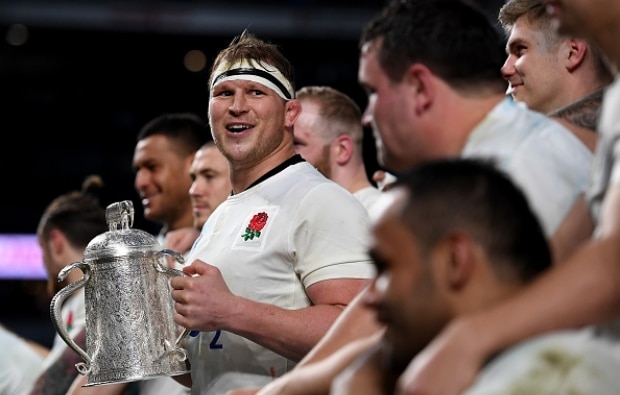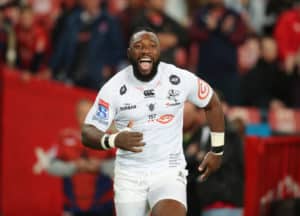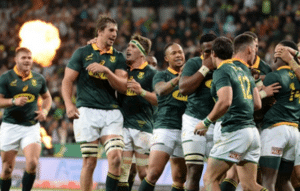England’s investment in intellect and tradition is at the heart of their record-equalling success, writes JON CARDINELLI.
England thrashed Scotland 61-21 at Twickenham on Saturday to claim the Six Nations title and equal the tier-one record of 18 consecutive wins. Afterwards, coach Eddie Jones said that the players remain hungry for a Grand Slam success, as well as an unprecedented 19th tier-one victory on the bounce.
Jones’ statement said much about the team’s present culture and standards. Who could have predicted that England would warrant comparisons with the All Blacks only 17 months after bombing out of the 2015 World Cup at the pool stage?
Jones has restored integrity to the England brand. From the outset, he has looked to innovate and to enlist the help of coaching specialists from around the world. At the same time, he has insisted that the players remain true to the traditional strengths of set-piece and gainline physicality.
ALSO READ: Joseph hat-trick powers title triumph
To paraphrase the coach himself, England have gone back to the past so they can go to the future. Not since the early 2000s has an England pack commanded such fear and respect.
The current side has worked to develop its defence and kicking game. On the back of such dominance, England have endeavoured to make their counter-attacking opportunities count, often to spectacular effect.
That said, they haven’t made the same mistake as Australia and South Africa. While England have spoken at length about their desire to surpass the All Blacks at the top of the World Rugby rankings, they have not tried to replicate the All Blacks’ style of play.
The Springbok side of 2017 finds itself in a similar position to that of the England side of 2015. The South African rugby system is in dire need of a shake up, while the national side desperately needs a coaching team that can add value.
SA Rugby got it wrong in 2016 when they appointed Allister Coetzee as Heyneke Meyer’s successor. They got it wrong when they forced coaches within that setup to occupy dual roles instead of specialising, and when they included a complete rookie in Mzwandile Stick for no other reason than they wanted to appear pro-transformation. What they were trying to achieve with that mix of coaches was never clear.
What Coetzee himself was trying to achieve in 2016 was never clear. Every Bok press conference was fraught with mixed messages which ultimately confirmed that the coach and his players were not on the same page.
The Bok side of 2016 had no identity, no direction, and no hope of realistically challenging truly ambitious teams like New Zealand and England. At times, Coetzee and company attempted to draw comparisons between the Boks and the All Blacks, using the drive to play with more ball-in-hand as an excuse for mistakes and failure. The irony was that the Boks’ frantic running approach played directly into the hands of their more pragmatic opponents.
How about some positivity, you ask. Surely the Boks can turn things around as England did in the wake of the 2015 World Cup? At that stage, England were a laughing stock. Nobody’s laughing at them now.
There will be no change without brutal and uncompromising honesty. SA Rugby needs to admit that Coetzee is not the answer. The next coach must bring new ideas to the table, but he must also appreciate the Boks for the brutes that they are.
Build on the existing strengths. Encourage that bully mentality. Recruit specialists who can develop and refine skills with the boot and at the tackle. Consider someone like Sherylle Calder, the renowned visual coach who worked with Jones and England recently, as a means to improving handling and spatial awareness.
England’s success has been hard-earned. Hard decisions were made by the Rugby Football Union in the wake of the 2015 World Cup.
Jones was particularly hard on his players in the lead-up to the 2016 season. Since his appointment, there’s been an honesty about what England need to do to improve, and what needs to change before they can realise their ambition of ruling the rugby world.
ALSO READ: All Blacks still have edge over England
The record of 18 consecutive wins confirms they are doing something right. A closer analysis of those matches will reveal that they have enjoyed success while staying true to their identity.
A lot will need to change over the next year or so before the Boks can say the same.
Photo: Shaun Botterill/Getty Images





